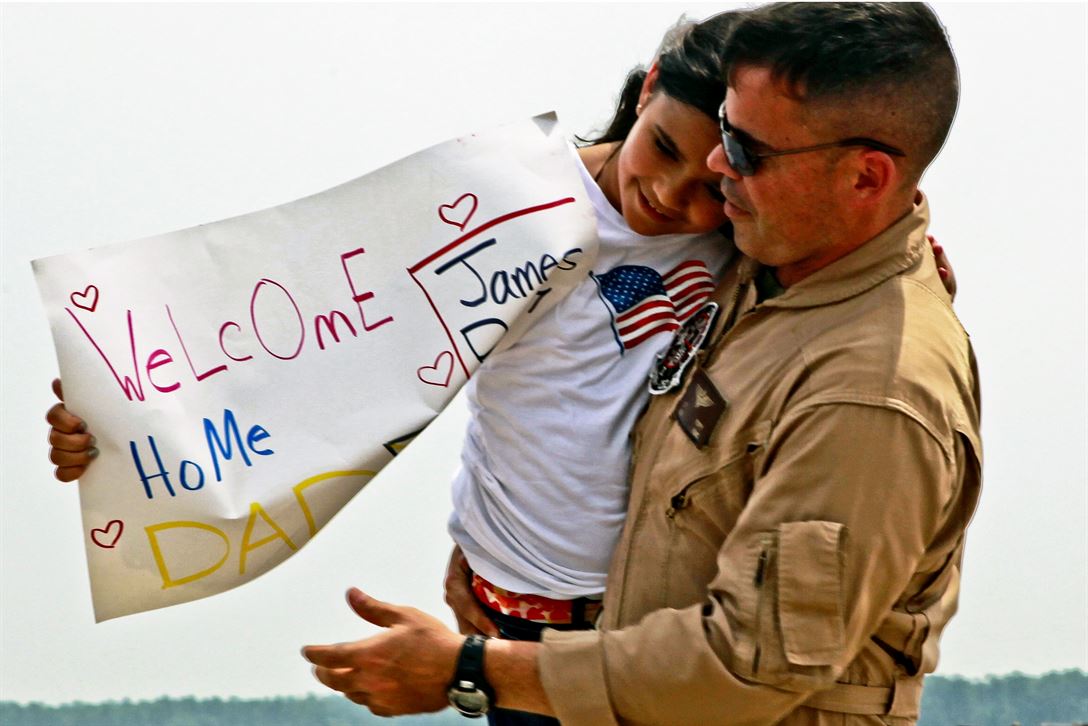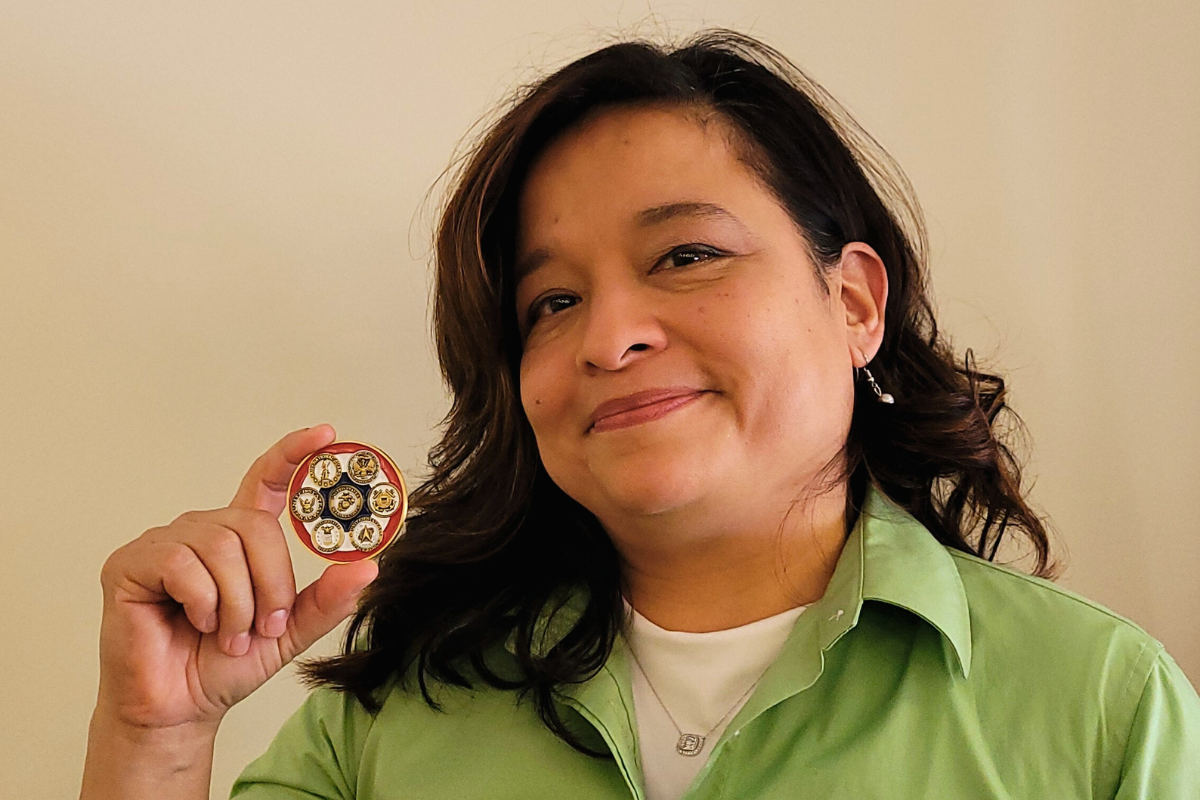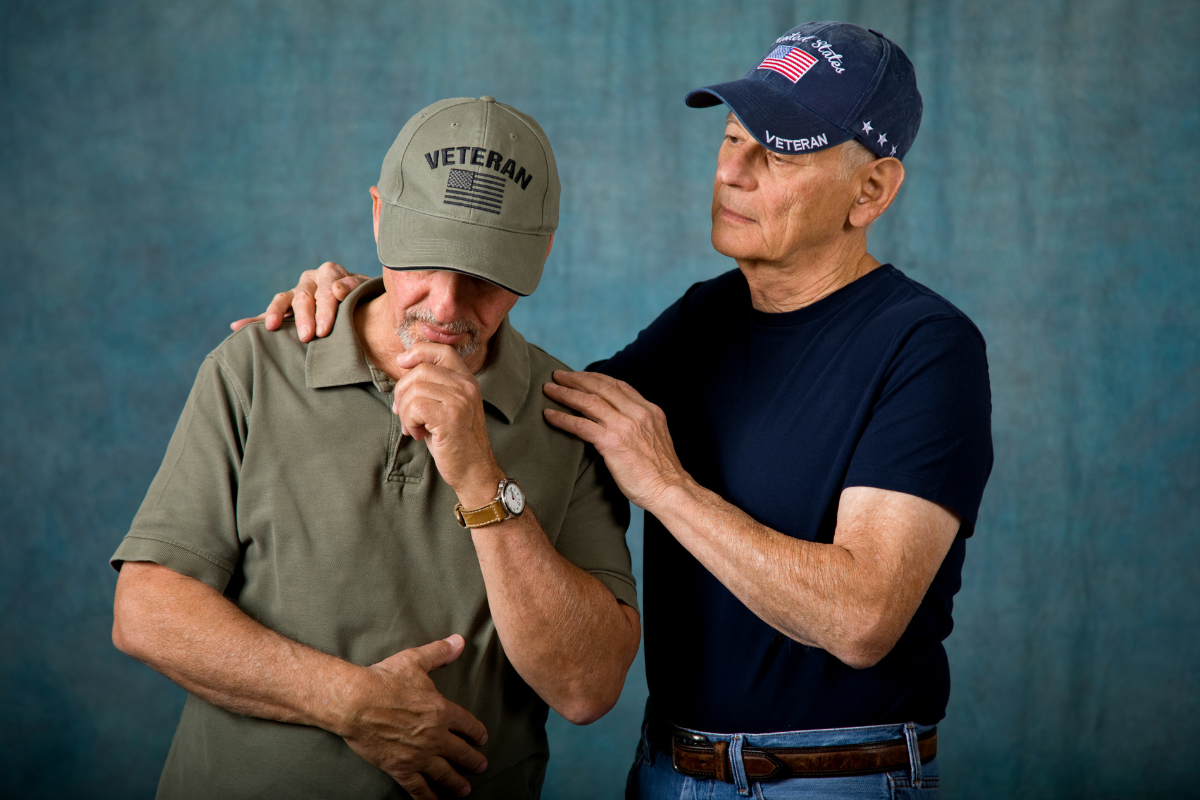How to Prepare for a Veteran Homecoming

Just as every Veteran’s oversea experience varies, so does their transition back to home life. As families of returning Veterans, it is critical we understand there is no clear-cut and universal method in welcoming back our loved ones. While a surprise welcome-home party may be embraced by some Veterans, for others, it can create an overwhelming amount of stress and potentially trigger anxiety.
With every individual case being so different, how can we know what are the right things to do? It’s important to remember that a homecoming is not just a single event, rather a week, month, or even life-long process.
And the key to any process is preparation.
Preparing Yourself
Before you can prepare your home, kids, or family for a Veteran’s homecoming, you have to prepare yourself. Returning Veterans are likely to have changed since you last saw them. But keep in mind, you might have changed too! Learning to work together and communicate again might not be as easy or the same as it was, but rest assured — it just takes time.
Do your research. Learn as much as you can about things like post-traumatic stress disorder (PTSD), marine life, social anxiety, and more to help you understand how and why your loved one may have changed. Taking advantage of online resources and articles is a great start. Try these samples from We Honor Veterans, Military 1 and At-Ease to help you.
Additionally for spouses, being intimate again may not be what you expect. Sometimes, Veterans might be too tired, body conscious, or simply feel they don’t know you enough anymore. Take this time to re-learn your Veteran spouse, maybe they (or you) have new interests. Go on your first date again, learn a new hobby together, or spend some time relaxing to spark your intimacy.
Don’t get discouraged when things take a while to become “normal,” and accept the possibility that things might not ever fully return to what they once were – but still have the chance to be great.
Preparing Your Family
Imagine how much you might know about your Veteran’s “world.” Now, imagine how much your children know, and how much of it they actually understand. When talking to your kids about upcoming changes, it is important to use certain language and tone.
It’s best to use simple words and a calm tone. Encourage your children to ask questions; it is essential they fully understand what you are explaining. Leaving kids with any unanswered questions may prompt them to ask at a later time—possibly, at the wrong time.
Changes in your Veteran’s attitudes, actions, and appearance are important to discuss as well. For example, if your child and Veteran are building a puzzle together, a wave of restlessness and anxiety may cause the Veteran to leave the game. Your child might think, “What did I do wrong?” Prevent feelings of guilt and confusion in your child by discussing these possible scenarios before they happen.
Ultimately, use your judgment. Based on your child’s age and understanding of things, decide how much detail you want to discuss with them and what is okay and not okay to say.
Preparing for the Future
As our Veterans begin to age, they may start to experience symptoms of PTSD for the first time or have stronger, more frequent episodes. For families who have yet to encounter these episodes, it can be concerning.
At Crossroads Hospice & Palliative Care, our unique Veterans end-of-life care is specially adapted in caring for senior Veterans, especially those who may be experiencing symptoms of PTSD or having other difficulties. All of our staff members and volunteers are educated and trained in caring for Veterans who may be experiencing those symptoms.
Here, we have an understanding of how to communicate and help ease Veterans during troubling moments. Additionally, our Veteran Recognition Program acknowledges our Veteran patients by providing a certificate and honorary presentation to show our gratitude.
It is important that Veterans – our heroes – are recognized for their sacrifices and treated with the utmost care and respect at all stages of life. To learn more about Crossroads and hospice care for Veterans, please visit our website or call us at 1-888-564-3405.
Recommended Reading:
Veterans Benefits You May Not Know About: How to Access Them
Real Heroes Wear Dog Tags: To Our Young Veterans in Hospice
If you found this information helpful, please share it with your network and community.
Copyright © 2017 Crossroads Hospice & Palliative Care. All rights reserved.




